Hey folks, Barbarella here reminding you that it’s Black History Month, and cinephiles now have an option to celebrate this month by getting a copy of HORROR NOIRE: A HISTORY OF BLACK HORROR. The documentary, which features a ton of familiar names and faces in black cinema, came out this week on DVD and Blu-Ray and explores the history of black people in horror. Although providing a wealth of information, the information is shared in a conversational way, making it more accessible to a wider array of audiences. I had the opportunity to speak with executive producer Tananarive Due about the film, black horror, and even her class that utilizes Jordan Peele’s GET OUT as a teaching tool.
What appeals the most to you about examining black horror?
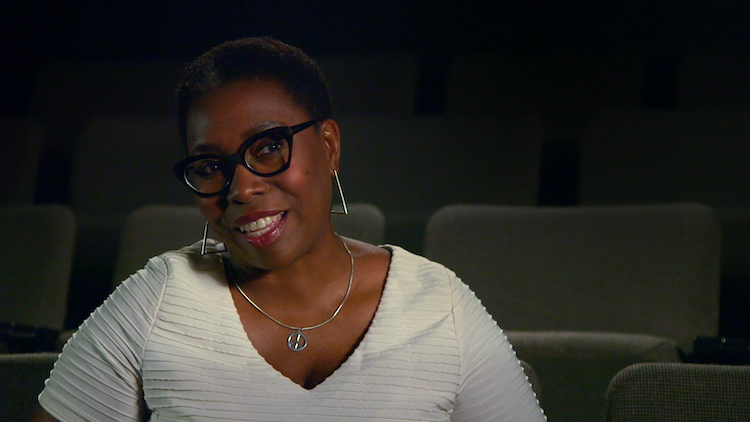
“Wow, I hardly know how to answer that because horror is just where I live, and I always have since I was a kid, discovering Stephen King when I was sixteen. My late mother, Patricia Stephens Due, was a great horror fan and so creature features were playing on the TV every Saturday morning. I'm pretty sure I was exposed to some inappropriate content, but instead of being traumatized, I just love it. I love it. And as I've gotten older, I have, I think, a more sophisticated relationship with horror. It's not just the rollercoaster ride; it’s really, in terms of especially black horror, understanding why people like my mother were attracted to it in the first place.
“And I think that's an important aspect of the love affair black audiences have with horror, which probably overlaps to all audiences, but specifically there's been so much racial trauma with black Americans that I really feel like my mother, as a civil rights activist who had suffered state violence – she wore dark glasses the whole time I knew her because a police officer threw a tear gas canister in her face during a peaceful march when she was twenty years old – what do you do with that pain? What do you do with that rage when you feel like an outsider in your own country, when your own country treats you like an enemy?
“I think horror is where she put that pain and rage. And even though we never talked about it – I wish we had; she passed away in 2012 so she never saw HORROR NOIRE – she always encouraged me when I wanted to write. She loved that I wanted to write horror. My other two sisters were lawyers, and I kind of wanted to do that. As an artist, I just couldn't; I had to lean into writing horror. I've been publishing horror since 1995, so it's really exciting in 2021 to see that the larger horror audience has started to embrace what I do and what other black horror creators do."
Would you say that Stephen King is your favorite horror writer?
“Well, I guess so. He's the most consistent horror writer in my world since childhood, so of course he has a very special place, and his new books are still exciting to me. And there are newcomers, I guess I could say, that are really exciting too. The Native American author, Stephen Graham Jones, with his book “The Only Good Indians” is really fantastic, scary, and well-written. It's short too. Oh, and the audio book is fantastic, as well.”
What most appealed to you about working on this documentary?
“Oh, I was just thrilled when I was approached to be an executive producer on HORROR NOIRE because it's about the subject I absolutely love, and I didn't have to pitch it, and I didn't have to write it. I mean it was just such a great opportunity to share ideas and get on camera and talk about a subject matter I love. It appealed to me because I'd read Robin R. Means Coleman's amazing book. You could really extract three or four documentaries, at least, from the scholarship she has and the book that we adapted it from, but HORROR NOIRE just had such a great team. Director Xavier Burgin, and Ashlee Blackwell, and Danielle Burrows just really brought it when they wrote it. And I have to shout out Phil Nobile Jr. as a producer. It was my first time working with a team on a feature-length movie, and I was just like a kid in a candy store. I get to talk about horror, and I get to hear other people talking about horror. It was great.”
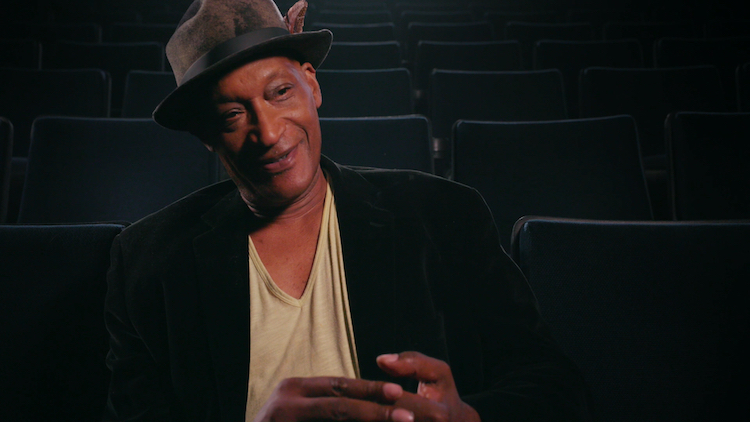
What's the scariest thing you've ever seen in a movie?
“Holy cow. Oh, that's so hard. That's so hard. You know what? I'm going to go back to childhood, and that makes it easier because it's the first scariest thing I ever saw in a movie. The first scariest thing I ever saw in a movie was the original movie THE FLY, not the Jeff Goldblum one, but the original one. I think it came out in 1950. In all honesty, it doesn't hold up. I've re-watched it; it's not as scary to me now, but as a kid, the idea that part of you could be divided in half, you'd have a good hand and a bad hand, and your bad hand tries to kill people is scary. But more so than that, the very ending, spoiler, when the scientist is trapped in a spider web, and he's tiny, he's fly size, nobody can see him or hear him, and he's saying, "Help me, help me," that was the scariest thing I'd ever seen. The idea of becoming invisible and voiceless, that was scary."
What themes would you like to see explored more in black horror and why?
“Well, one thing I said at the HORROR NOIRE premiere, because it was an audience full of horror lovers and executives from all over Hollywood, is I said, “The one thing I would like to see improve is adaptation,” because so many films are adaptations of novels, but that has not been true in black horror. It's been original script, and they've been great original scripts. GET OUT is an original script. So many of these films are original scripts, but I also happen to know that I'm not the only black horror creator out there, and there are several projects that would make fantastic films, so I would love to see more of a pipeline between the literary world and the cinematic world for black horror writers, and I'd like to see more of those writers staffed in rooms for horror series and getting opportunities to write scripts. So that's one thing.
“And I guess the other thing is just to sustain and grow. So as black horror creators, people should feel free to write and produce films that have nothing to do with race, except maybe the protagonist happens to be black, which is still revolutionary in 2021, or lean into the racial trauma, lean into race, like in GET OUT, but in your own way, and everything in between. I think that as black horror creators, we have to give ourselves the freedom to express horror in the way that is the most organic for us personally. Sometimes just writing the human story is the story you want to write and sometimes the racial story is a story you want to write."
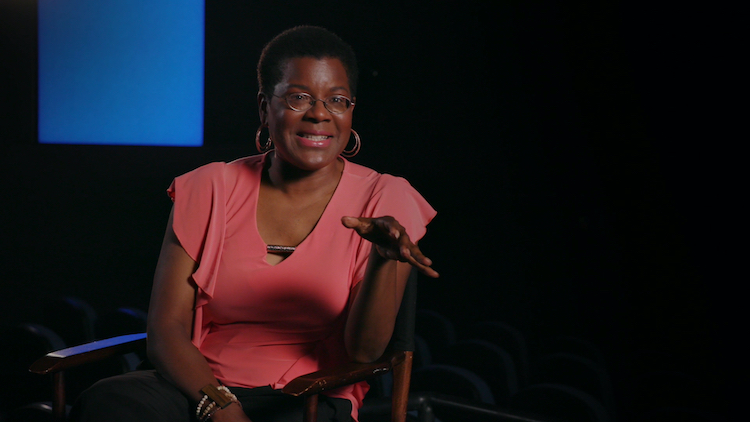
Right. So which is more truthful in your opinion, art imitates life or life imitates art?
“It's so interesting how true both of them are. And I really think the reason life seems to imitate art is because unconsciously creators are so astute in their observations of the world that it's pretty easy to predict where things will go. I mean a great example is Jordan Peele's GET OUT because that was written during the Obama era, which felt more racially placid, although it wasn't entirely. Black Lives Matter was actually born during the Obama era, but for a lot of people, it felt like calmer times. Then it's released during the Trump era and seems like the perfect fit for the times, when in fact it was already a perfect fit, but a lot of people didn't see it yet. It had to really bubble to the surface.
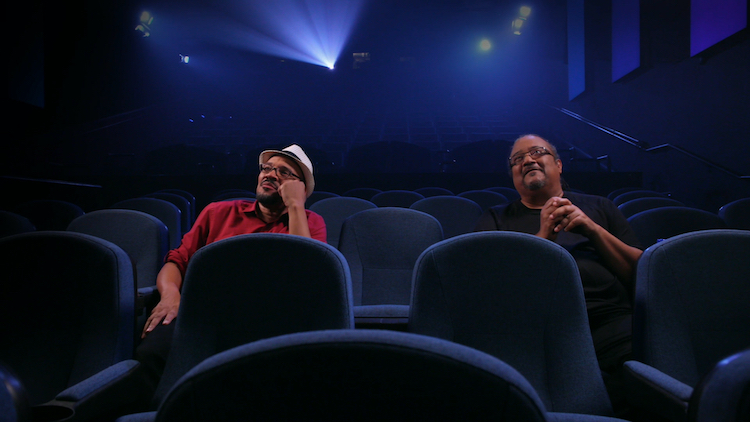
“Jordan Peele just had that awareness that all was not well and was able to get that movie out in a way that makes it seem like life was imitating art, but in fact, history repeats. These things happen in cycles, so if we're observers of the world, we can predict the next bad thing.”
Right. I did read about your development of that UCLA course using GET OUT as educational material, and I would love to take that course because that movie is so amazing. I also read that Jordan Peele visited the class at one point. Would you describe a little bit about the class and the experience of having him visit?
“Well, sure. I had been teaching at UCLA for just a couple of years, teaching something called Afrofuturism, which is basically the black speculative arts: science fiction, fantasy, and horror. But when I saw GET OUT, I realized I had a great opportunity to lean into black horror specifically because this movie could be such a great linchpin, but it's also, much like HORROR NOIRE, a deeper dive into films that preceded GET OUT that were also challenging white supremacy, like TALES FROM THE HOOD, or were just about black life and ritual and magic and family drama, like EVE’S BAYOU.
“Teaching the course was just so exciting for me that, of course, I was tweeting about it all the time, “Oh, I'm going to do this course.” And then a reporter, Evan Narcisse, saw me tweeting about it and wrote a story for io9. The very same day that story appeared, Monkeypaw Productions – that’s Jordan Peele's production company – followed me on Twitter. I was so excited and also, being no dummy, I know that if someone follows you on Twitter, and you're following them, you can send private messages, so I sent a message to Monkeypaw saying, "Oh, it would be great if Jordan Peele could come to my class." Why not? He can only say, “No.” Within two hours, I had a response from Jordan Peele himself saying, "Ha-ha, I could surprise them." And that's what happened. A couple of weeks later, he's in a baseball cap and hoodie. We snuck him into the back row while I was screening a scene from GET OUT that gets my students very agitated, when Rose is holding the car keys and says, "You know you're not getting these keys, babe."
“My class was all set, and they're talking smack to Rose, and I put up the lights and said, "What do you think the director was trying to tell us about the coveting of black bodies?" And Jordan Peele raised his hand, and the class went crazy. So that's where that visit came about, and he's actually been back two or three times since then. I really enjoy the fact that he's been so open to talking to the students and exchanging ideas. And even from my digital download course, because so many people heard about the course, because it kind of went viral after his visit, that my husband and collaborator Steven Barnes and I offered a digital download version of the course for people who aren't enrolled at UCLA at www.sunkenplaceclass.com, and Jordan Peele also made an appearance for that on Skype back in those Skype days.”
That's very cool. So going back to HORROR NOIRE, what was the best part of the experience of making that documentary? Logistically, how did that work?
“Well, I think for the most part we discussed the films we were most comfortable discussing. Because I was teaching the class, I had watched all of the films that were in the documentary so that worked out, but I thought it was great how director Xavier Burgin paired people to talk about horror. One of the great pairings is Rusty Cundieff, who was the director of TALES FROM THE HOOD, with Ernest Dickerson, who's done a lot of great horror television as well as the film DEMON KNIGHT. That really helps create the feeling that you're sitting around with friends talking about your favorite movies, but also just seeing these artists with each other and discussing the films you like, it was really like a party, as far as I was concerned.
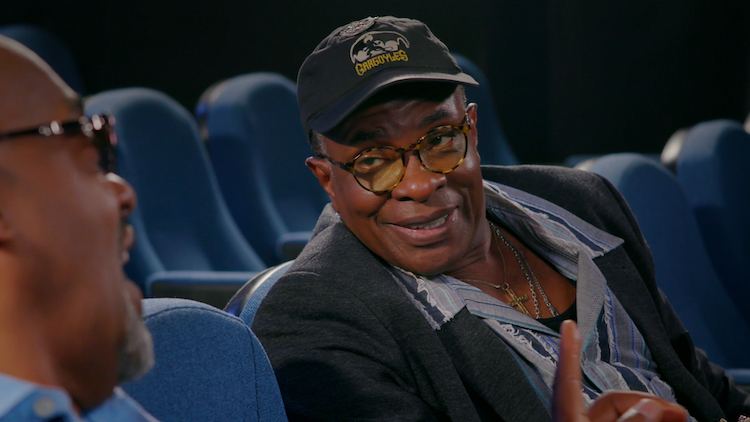
“For me, because HORROR NOIRE critiques so much horror in the past, in terms of the stereotypes of black characters, I thought horror audiences might be more defensive, but I’ve been super excited at how well HORROR NOIRE has been received. It’s been a really pleasant surprise that people don’t mind being educated, and that they’re also celebrating those lesser known black horror films with us.”
If you’re interested in learning a little about black horror and getting some recommendations for films you may not have seen, I recommend HORROR NOIRE: A HISTORY OF BLACK HORROR. It’d make a great addition to any cinephile’s collection.
